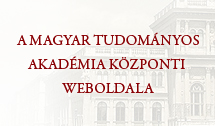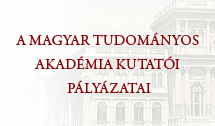Political Realism and Practical Morality: Historical and Theoretical Perspectives
A workshop at the Institute of Philosophy of HAS for political philosophers and historians of early modern political thought
Call for Papers
The Research Group on Practical Philosophy and the History of Ideas of the Institute of Philosophy, HAS announces its plan to organise a workshop on 18-19. November 2016 on an emerging field of common interest for political philosophers and historians of political thought. The recent boom of political realism both in an international and in a national dimension provokes new or newly formulated research questions for both scholars of international relations, political theory and the early modern history of political thought. The Institute of Philosophy will provide a friendly atmosphere for a research workshop on this theme, with plans of working out the framework for further potential common research programmes.
The Agenda
The early modern period saw the emergence of the theme of human nature, self-interest and political power as decisive factors in the field of political theory. Even early realist thinkers were hence deeply preoccupied with the peculiar relationship between morality and the harsh realities of life. Concepts like “mixed prudence” (prudentia mixta), “just” or even “necessary war” (bellum iustum / bellum necessarium) began to prevail in the political discourse, while theories of natural rights along with the ones of international law aimed at establishing the legitimate framework of political action in an international context.
Since contemporary thinkers confront similar challenges in a world of political uncertainties, the dichotomy first outlined by realists like Machiavelli, Grotius or Hobbes is still with us even today: the question of how values (either ethical or cultural) can shape political decision-making in interstate relationships has been a major concern for theorists like e.g. Morgenthau, Kissinger, Huntington or Kagan. Moreover, recent discourse has been busy defending the very foundations of realism, since normative attitudes of “anti-politics” (viz. the ones favouring norms and institutions instead of active political agency in handling conflicts) constitute a serious challenge, while also promising arguments have been provided against the legitimacy of quasi-utopian “wishful thinking” in the field of politics. Yet, if the ideal of consensus between either citizens or states proves illusory – as even some liberal theorists
admit – the legitimacy of the use of power in politics needs to be reconsidered (see: the works e.g. of William Galston, Raymond Geuss or Matt Sleat).
Furthermore, while keeping in mind that aspects of realism are a dominant part of any particular political discourses, one should also reflect on the constitutive power of the very discourse on the concept in question. Hence, the historiographically alert discourse of the historian of ideas can be regarded as a complementary one to that of the logically tuned or substantive one of the political philosopher and to that of the practically oriented researcher of international relations or national political challenges.
We invite, therefore, young (doctoral and postdoc) as well as mid-term researchers of political philosophy, of the history of political thought and of international relations, to send us a title they propose for their paper and an extended abstract of the length of 3-500 words. The two-day-long workshop will be organised in Budapest at the headquarter of the Research Centre for the Humanities of HAS. We can offer contribution to accommodation or travel to a few graduate students or postdocs who are in need of it.
Invited keynote speakers will include: John Dunn (Cambridge University) and Duncan Kelly (Cambridge University).
Titles and abstracts of the proposals are expected to be sent by 30. June to: This email address is being protected from spambots. You need JavaScript enabled to view it.
For further questions please contact: This email address is being protected from spambots. You need JavaScript enabled to view it.
In the name of the organisers:
Prof. Ferenc Hörcher, director, Institute of Philosophy, HAS
Adam Smrcz, assistant researcher, Institute of Philosophy, HAS


